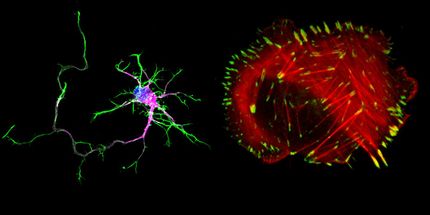American Scientist Wins 2019 Eppendorf & Science Prize
Dr. Orefice found that peripheral somatosensory neurons – neurons outside the brain that control the sense of touch – are key areas where autism-associated gene mutations have a critical impact. She showed how abnormal function of peripheral somatosensory neurons causes touch over-reactivity and how this over-reactivity during development contributes to altered brain function and some autism-related behaviors in mice. Dr. Orefice’s work changes how we think about the causes of ASD, providing a surprising revision of widely-held views that link ASD exclusively to brain function. She highlights peripheral somatosensory neurons as a possible novel therapeutic target for improving some ASD-related symptoms.

Dr. Orefice
The annual US$25,000 Eppendorf & Science Prize for Neurobiology honors scientists, like Dr. Orefice, for their ground-breaking research. Lauren Orefice is the 18th recipient of this international prize which is awarded jointly by Eppendorf and the journal Science. Researchers who are 35 years of age or younger and have made outstanding contributions to neurobiological research based on methods of molecular and cell biology are invited to apply. The next deadline for applications is June 15, 2020.
Most read news
Topics
Organizations
Other news from the department science

Get the life science industry in your inbox
By submitting this form you agree that LUMITOS AG will send you the newsletter(s) selected above by email. Your data will not be passed on to third parties. Your data will be stored and processed in accordance with our data protection regulations. LUMITOS may contact you by email for the purpose of advertising or market and opinion surveys. You can revoke your consent at any time without giving reasons to LUMITOS AG, Ernst-Augustin-Str. 2, 12489 Berlin, Germany or by e-mail at revoke@lumitos.com with effect for the future. In addition, each email contains a link to unsubscribe from the corresponding newsletter.





















































